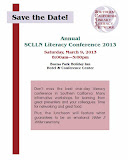
LA Business Journal: February 25 – March 3, 2013, p. 75
Op-Ed written by Mari Riddle
(president and chief executive of Centro Latino for Literacy
on Centro Latino for Literacy Website - Media
In recent national speeches, President Obama has outlined a series of principles on the need for comprehensive immigration reform. While immigration remains a key issue in a global city like
To remain competitive, we – as elected officials, business executives and non-profit leaders – must focus our efforts to maintain and produce an educated and skilled workforce not only in the formal economy, but also in the informal economy. By the informal economy, I’m referring to unregulated and unreported economic activity.
According to a 2005 Economic Roundtable report, “Hopeful Workers, Marginal Jobs: L.A.’s Off-the-Books Labor Force,” an estimated 16 percent of the city’s workforce is employed in the informal economy. This represents $3.6 billion in annual payroll, if we assume an annualized wage of $12,000. At the
For many individuals who experience lack of upward mobility in the formal economy due to lack of human capital, English proficiency and basic literacy skills, the informal economy remains a viable option for them to pursue economic opportunities. While informal workers lack basic governmental regulations and protections in the workplace, they also fail to report income during tax season.
To help integrate these informal workers into the mainstream, we first need to address the high rate of nonliteracy among many of these individuals, particularly among Spanish speaking adults. In the county, for instance, the





